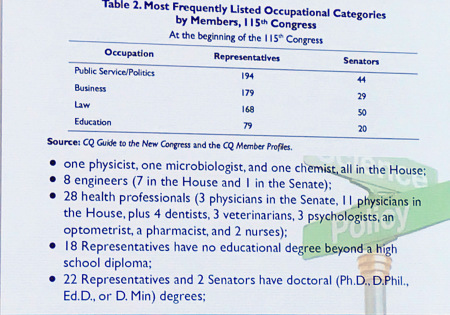BELLINGHAM, Washington, and WASHINGTON, DC, USA May 23, 2017
Federal funding for basic and applied scientific research — a powerful driver of the economy as well as an enabler of life-saving medical and other vital technologies — deserves continued support, say leaders of SPIE, the international society for optics and photonics. They joined others in the scientific community today in responding to the President’s budget request for Fiscal Year 2018.
The White House presented President Trump’s budget proposal to Congress this morning, following submission of an outline at the end of March. The fiscal year begins in October.
Among positives in the recommendations, SPIE leaders noted continued support for the National Institutes of Health Cancer Moonshot project, as well as for applied research and advanced technology development in the Department of Defense budget.
“Continued investment in researching a cure for cancer should remain a top priority for the nation,” said Jason Mulliner, chair of the SPIE Engineering, Science, and Technology Policy committee. “Only through a concerted and well-funded effort will we win the war against such a ravaging illness.”
Budget cuts in other areas raised concerns.
“At first glance this is a very troubling proposal, which calls for historic cuts to U.S. research and development funding,” said SPIE CEO Eugene Arthurs. “For science and technology, it seems a turning away from investing in the future, from what has brought prosperity and health to our nation and to the world. The final say is with Congress, which we hope will have a different view of the path to a better future.”
The next steps are hearings by House and Senate committees on the proposed budget and its impacts, and drafting of budget resolutions for appropriations that will be negotiated between the two houses and sent to the President for signing.
“It is important to note that final decisions on funding levels for Fiscal Year 2018 ultimately will be decided by Congress,” said SPIE Government Affairs Director Jennifer Douris. “Along that line, in the recently finalized Fiscal Year 2017 omnibus spending bill, Congress provided for an increase in federal R&D by five percent above Fiscal Year 2016 levels despite a request for significant cuts by the Administration.”
Among some of the programs of particular importance to SPIE membership, Douris said, the President requested $149 million in cuts to the National Center for Advancing Translational Sciences (NCATS) and $471 million in cuts to the National Institute of Neurological Disorders and Stroke (NINDS) within NIH. Within the DOE Office of Science, the President’s budget requests $290 million in cuts to Basic Energy Sciences (BES). Additionally, the President proposes to discontinue funding for Hollings Manufacturing Extension Partnership (MEP) within NIST.
Source: Proposed U.S. Budget Cuts for Science and Technology Funding Spark Comment
